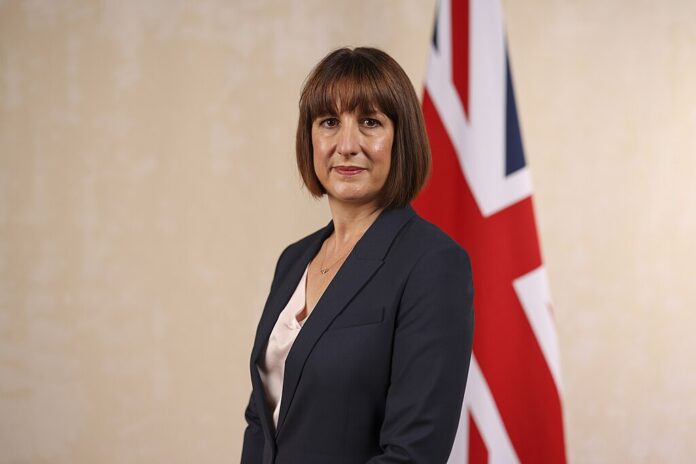Prime Minister Keir Starmer embarks on UK tour; Chancellor Rachel Reeves unveils ambitious economic growth plan
In a decisive start to their tenure, Prime Minister Keir Starmer and Chancellor Rachel Reeves have launched into action across the UK, setting the stage for a new era of governance and economic policy. Starmer’s tour began in Scotland and has now taken him to Belfast, where he emphasizes stability and the preservation of the Good Friday Agreement. His visit marks a commitment to fortifying relationships with Northern Ireland’s leaders amidst broader plans to unite the devolved nations.
Simultaneously, in London, Chancellor Rachel Reeves addressed business leaders at the Treasury, outlining Labour’s ambitious economic strategy. Reeves declared economic growth a “national mission,” signalling a departure from past uncertainties and a bold step towards revitalizing the post-Brexit economy. Central to her plan is the reintroduction of compulsory house building targets and the streamlining of planning regulations to catalyze substantial investments, particularly in green industries and infrastructure.
Embed from Getty ImagesThese initiatives come at a critical juncture as the UK seeks to rebound economically while addressing longstanding social and infrastructural challenges. Reeves’ speech underscored Labour’s proactive stance in governance, aiming to attract international investments by positioning the UK as a stable and promising market amid global political upheavals.
The Guardian
Recent political activity in the UK has been marked by significant developments across several key areas. One notable highlight is the UK’s commitment to provide additional military aid to Ukraine, announced by Defence Secretary John Healey during his visit to Odesa. This aid package includes ammunition, artillery guns, and anti-tank missiles, aimed at bolstering Ukraine’s defenses against Russian aggression.
Labour Party leader Keir Starmer has embarked on a nationwide tour starting in Scotland, where he has emphasized resetting relations with devolved governments and reaffirmed Labour’s commitment to addressing issues such as child poverty and advancing net-zero environmental goals. Meanwhile, within the Conservative Party, speculation continues about potential leadership changes following recent electoral setbacks. Former Home Secretary Suella Braverman is reportedly facing waning support, with figures like Robert Jenrick, Priti Patel, and Kemi Badenoch emerging as contenders for leadership roles.
Health Secretary Wes Streeting is actively engaged in addressing challenges within the NHS, including a pay dispute with junior doctors that led to recent strikes. The government aims to tackle issues like lengthy waiting lists and operational improvements. On the immigration front, Home Secretary Yvette Cooper announced plans to establish a new UK Border Security Command to enhance enforcement against illegal immigration and smuggling activities.
Additionally, the UK government, under Starmer’s leadership, is developing a rescue plan for the Grangemouth oil refinery to protect thousands of jobs amidst scaling back plans by its owner, Ineos. These developments underscore key policy initiatives, leadership dynamics, and ongoing challenges confronting the new Labour government in the UK.
BBC
Keir Starmer, the Prime Minister of the UK, is currently in Belfast as part of his tour of the devolved nations. This visit follows his recent trip to Scotland and precedes his scheduled visit to Cardiff later in the day. During his time in Belfast, Starmer plans to meet with leaders of the power-sharing executive and other senior politicians. His focus includes discussions on maintaining stability and certainty in Northern Ireland, reaffirming Labour’s commitment to the principles of the Good Friday Agreement.
Meanwhile, in London, Rachel Reeves, the newly appointed Chancellor, is set to deliver her inaugural speech to business leaders. She intends to outline Labour’s economic strategy, emphasizing economic growth as a “national mission” and signalling a departure from what she terms as past “chaos and irresponsibility.” Reeves is expected to announce measures like compulsory house building targets aimed at revitalizing Britain’s planning rules and positioning the country as a stable environment for international investment amid global political uncertainties.
Additionally, Wes Streeting, the new Health Secretary, is embarking on a busy agenda in his initial days in office. He is slated to visit a GP surgery and meet with the British Dental Association to address the shortage of NHS appointments, caused partly by an outdated dental contract. Streeting is also scheduled to engage in talks with junior doctors to resolve a protracted pay dispute, which has disrupted healthcare services across England for over a year.
As new MPs begin their orientation at Westminster, these developments highlight the early priorities and challenges facing Starmer’s government, ranging from healthcare reform and economic revitalization to maintaining political stability across the UK’s constituent nations.
